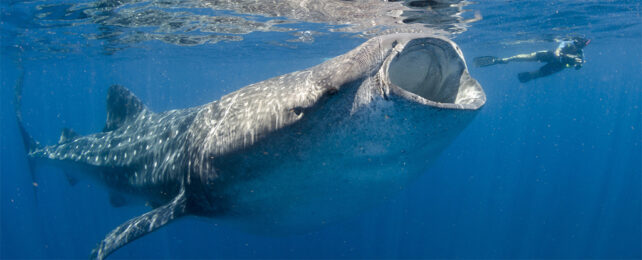Earth's Water Is Rapidly Losing Oxygen, And The Danger Is Huge
 (Colors and shapes of underwater world/Getty Images)
(Colors and shapes of underwater world/Getty Images)Supplies of dissolved oxygen in bodies of water across the globe are dwindling rapidly, and scientists say it's one of the greatest risks to Earth's life support system.
Just as atmospheric oxygen is vital for animals like ourselves, dissolved oxygen (DO) in water is essential for healthy aquatic ecosystems, whether freshwater or marine. With billions of people relying on marine and freshwater habitats for food and income, it's concerning these ecosystems' oxygen has been substantially and rapidly declining.
A team of scientists is proposing that aquatic deoxygenation be added to the list of 'planetary boundaries', which in its latest form describes nine domains that impose thresholds "within which humanity can continue to develop and thrive for generations to come."
"The observed deoxygenation of the Earth's freshwater and marine ecosystems represents an additional planetary boundary process," the authors write, "that is critical to the integrity of Earth's ecological and social systems, and both regulates and responds to ongoing changes in other planetary boundary processes.
"Relevant, critical oxygen thresholds are being approached at rates comparable to other planetary boundary processes."
The concentration of dissolved oxygen in water drops for a number of reasons. Warmer waters can't hold as much dissolved oxygen, for instance, and with greenhouse gas emissions continuing to raise air and water temperatures above their long-term averages, surface waters are becoming less able to hold on to this vital element.
Dissolved oxygen can also be depleted by aquatic life faster than it is replenished by the ecosystem's producers. Algal blooms and bacterial booms triggered by an influx of organic matter and nutrients in the form of agricultural and domestic fertilizers, sewage, and industrial waste, quickly soak up available dissolved oxygen.
In the worst cases, the oxygen becomes so depleted that the microbes suffocate and die, often taking larger species with them. Populations of microbe that don't rely on oxygen then feed on the bounty of dead organic material, growing to a density that reduces light and limits photosynthesis to trap the entire water body in a vicious, suffocating cycle called eutrophication.
Geen opmerkingen:
Een reactie posten